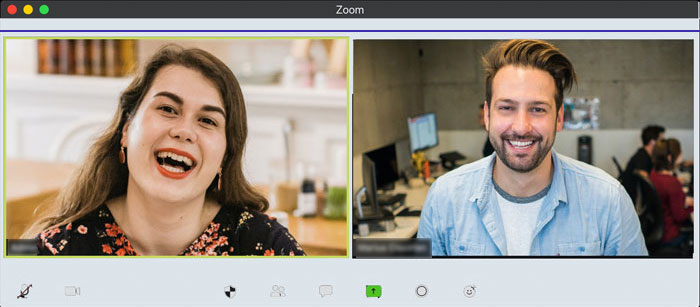
Frequently Asked Questions – FAQs
Have a question that is not answered here? If we feel your question is a common concern, we will post the answer here for future reference.
FAQs for All Interested Individuals

What kinds of communication challenges can you help me with?
We can help you with any aspect of English or culturally-appropriate communication you require. We start with a needs assessment which can be with either one person or an entire department. Based on this, we propose a program for you – content and length. Training can include aspects such as accent modification, presentation skills, voice, conversation, cross-cultural training, interpersonal skills, writing and grammar. If you have several of these concerns, we can blend them into one program.
How does the training work?
We generally meet weekly for between 1 and 2 hours, depending upon the content focus and format of the meeting. Training is delivered online or, if possible for local clients, at your place of business. We suggest meeting regularly at first. Later, if you’d like, training can be spaced out to meeting bi-weekly so as to give you time to integrate the lessons.
Please note that our programs are customized and negotiable, not only in terms of the content but also the delivery. We aim to meet your needs in terms of skills development as well as practical needs such as scheduling and travel.
What is accent modification?
Accent modification (also called accent reduction, accent addition, elocution training and pronunciation training) refers to the process of teaching a client how to adjust their accent. This involves learning how to correctly form the individual vowels and consonants and adapt to the rhythm of English – the music of the language, which includes syllable and sentence stress, phrasing, joining words, reducing unstressed sounds, etc..
What is an attainable goal with regards to accent modification for most people?
Generally the goal is to speak clearly. We do not recommend attempting to sound “native-like” as a goal for most people since it takes great commitment and skill to come close. A non-native English accent shows you speak more than one language, can be a strong part of your identity and is not, in and of itself, an issue generally. We emphasize the importance of clarity and ease of listening for the person you are communicating with. We believe this is an attainable goal for most people who commit and put the work in.
What is an attainable goal for people who work in the media – actors, announcers, etc?
In contrast to what was said above, people who work in the media – actors especially – often want to sound native-like in order to fill more roles. Given the speech training and motivation that these clients tend to have, plus the fact that they are often working with scripts and therefore can memorize the appropriate accent more easily, this is a goal we can work with. It is important to note the difference between working from a script and free-form speaking; when you have to think a lot about what you are saying, the focus is deciding what to say which results in less focus on the accent.
How do I make an appointment?
You may call and leave a message, email us or complete the contact form. Once we have your contact information and area of interest, we can arrange a convenient time for your assessment.
How long will it take to improve my pronunciation and accent?
You will notice some changes immediately if you focus and do the required homework. Often we suggest a baseline of 15 weekly sessions with some follow-up sessions during the year. This varies depending upon the starting point and needs of the client. Nevertheless, accent modification takes time. We can teach you the sounds and theory, share tools to use and an approach to integrating your speech with the new accent, but you need to do the work.
Think of it like learning an instrument. You can take some lessons and learn a lot but it is the practice – the repetition to make a movement habitual – which is needed to play well. If you stop practicing, your abilities will weaken. If you practice enough that you develop new habits of speech, then simply speaking this way constitutes further practice, much like regular playing stabilizes technique. But first you need to develop the habits. How much time you dedicate to the tasks assigned, how much attention and involvement you have with what you are learning and your attitude towards changing your accent, all influence your success and the time needed to make noticeable changes.
Do you have sessions outside of regular business hours?
We offer sessions every day and evening except Saturday evening and Sunday.
If I take the assessment, do I need to commit to training?
When you take an assessment, you are free to accept or reject the assessor’s recommendations. There is no commitment unless you choose to commit. We understand the importance of commitment and the time needed to improve your English skills, especially when it comes to accent modification. The assessment will give you an overview of the key issues to address according to your concerns. You may decide to stop there, start the training immediately or leave the decision for later. It’s up to you.
Where are you located?
We are now offering our services online, making the training available world-wide. If conditions permit, we may be available to travel to your office in the Toronto, Canada and London, England areas.
How much does it cost?
The first step is the assessment which is offered at a promotional price (please contact us for current pricing.) Everyone receives a summary of the issues to be addressed and a formal report can be requested. We offer three programs, each of which include a different number of training sessions and additional services. We will recommend but you are free to choose what works for you. All services can also be purchased individually. We can give you more exact pricing upon request.

FAQs for Managers and Human Resources Professionals
Do you offer online coaching internationally and at convenient times?
Since moving online in 2020, geographical barriers are no longer an issue. With coaches in both Toronto, Canada and London, England, we can easily accommodate any international time zone.
Some of our employees work in a North American environment and others in a British context. Do you train in both these accents and cultures?
We are based in both Toronto, Canada and London, England. This allows us to train in both a neutral North American accent (typically heard on CBC or NBC) and British Received Pronunciation (typically heard on the BBC.) We can also indicate the variations in culturally-appropriate behaviour which can differ between Britain, Canada and the US.
We are looking for a coach for a C-Level position. Do you work with employees at this level?
One of our senior management employees is responsible for giving online presentations regularly. How would you help her?
We received feedback that one of our senior level employees could use some cultural training. We thought Canada had an inclusive work environment. This appears to be discriminatory. Please comment.
Understanding culturally appropriate behaviour is always important wherever you are. Even though inclusion or diversity may be a strong value within a company or country, most individual response to behaviour is emotional and largely culturally determined. When your behaviour has violated a value, people react negatively. An effective leader understands this process and does his or her best to learn local expectations. Adjusting behaviour to different contexts is a skill we all learn growing up – behaving one way with parents, another at work, another with male or female friends, another when socializing with people from different cultural backgrounds, etc.. It is only natural and polite to adjust our communication according to local customs and company culture. It is also much more effective. But it does take maturity and a degree of humility.
What is the Return on Investment on coaching?
According to the Forbes.com Reports on Huge ROI’s for Executive Coaching, “the mean Return on Investment in coaching was 7 times the initial investment, and over a quarter of coaching clients reported a stunning ROI of 10 to 49 times the cost.” This means that the reported ROI is somewhere between 340 to 700%.
How do I approach the topic of language coaching without insulting the employee?
This can be a difficult thing to do since many people are concerned that the employee will be offended or, worse yet, feel there is an element of discrimination present. We suggest framing it within the context of professional development. Many of the communication skills we teach are skills we all learn as we grow and gain experience. We all need to continually learn professional communication skills. So framing the discussion as support to improve and develop professional communication skills in general can be a way to approach the discussion.
Most employees will be happy to have the company’s support to improve their communication skills and professional image. There may be resistance from some people who feel their English is perfectly fine, especially those who have been speaking it much of their lives. The key is that people they work with understand them easily, not that there is anything “wrong” with their accent. They do have to be on board, though, for any progress to be made, especially in the area of accent reduction.
How can our company support our employees during the learning process?
Supporting them financially is the first step. Making time in their schedule to meet with their coach is also important. Thirdly, there is time involved in doing the homework so the employee needs to have some time for this. In our experience, corporate clients often have so little time, especially those with little children, which can result in slow progress. In an ideal world, these employees would be able to schedule some work time to do what is required, but this is not always feasible.
A second thing to consider is the commitment of the employee. Without commitment, little progress will be made, especially in the area of accent modification which is highly personal. When someone hires a coach themselves, the financial investment shows personal commitment to a large degree. When training is paid, the commitment is not always there. When a corporation decides to support an employee for one-on-one coaching, it is important to negotiate the employee’s responsibility and get their commitment. When a company is offering group training, since the pressure is much less, we find asking the participants to put a deposit down which can be refunded upon successful completion, motivates the employees to commit more. In both cases, there should be some personal investment of some type on behalf of the employee in the training, whether that be a financial or professional one.

